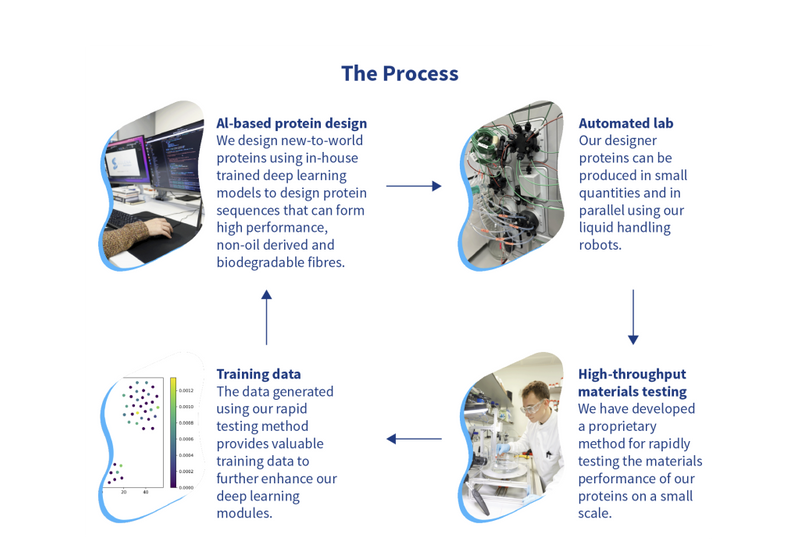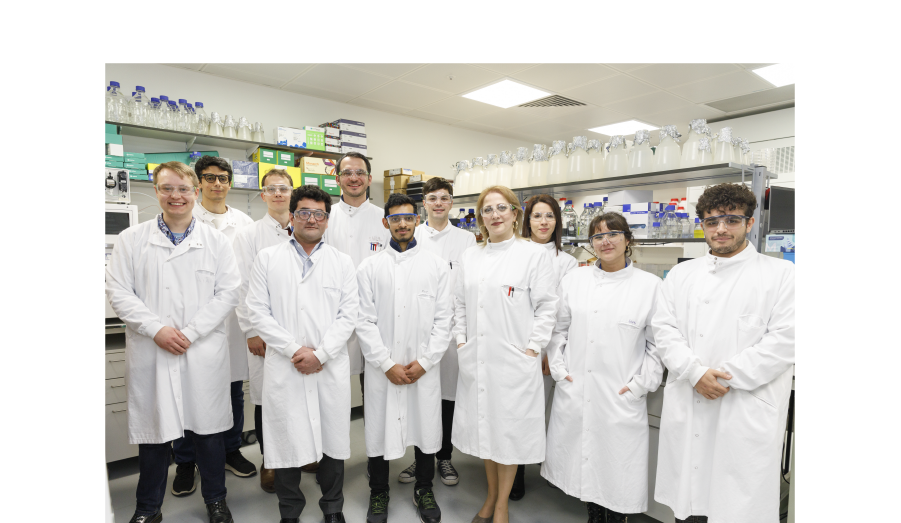Deep Biotech companies using engineering biology for good: Solena Materials case study

Solena Materials is a pioneering biotech company spun out from Imperial College London, specialising in the development of computationally designed synthetic protein materials, previously featured in BIA's Deep Biotech report on disruptive innovation for global sustainability.
What does the company do?
Solena Materials is a spin-out from Imperial College London that is developing new types of computationally designed synthetic protein material that is biodegradable and made from non-petroleum feedstocks. The company’s goal is to replace synthetic materials made from petroleum with more sustainable and environmentally friendly alternatives.
They have developed a method for designing and synthesising synthetic proteins with specific properties. The company’s proteins can be spun into tough continuous fibres with a unique combination of performance and properties that are not available in existing natural or synthetic materials. These fibres are suitable for use in a variety of applications, including textiles, composite materials, and medical devices.
What is the impact?
Solena Materials’ synthetic proteins have a number of environmental benefits over traditional synthetic materials. The proteins are biodegradable, so they will break down naturally in the environment. Additionally, the proteins are made from non-petroleum feedstocks, which reduces the company’s reliance on fossil fuels.
Why is biotechnology/engineering biology the solution?
Solena Materials uses engineering biology to design and synthesise its proteins. This approach offers several advantages over traditional methods of making synthetic materials. First, it is more precise and efficient, allowing for the creation of protein fibres with specific properties. Second, it is faster and more scalable, enabling the production of large quantities of proteins. Third, it is more environmentally friendly, as it does not require the use of harmful chemicals or solvents.

How do we drive forward the biorevolution in the UK?
The UK has a strong and growing bioeconomy, with several companies developing innovative biotechnology solutions. Solena Materials is one of these companies, and the company is well-positioned to take advantage of the UK’s supportive ecosystem for biotechnology.

What are the opportunities and challenges?
Solena Materials faces a number of challenges, including the need to scale up its production processes and to develop new applications for its proteins. However, the company also has many opportunities, including the growing demand for sustainable and environmentally friendly materials.
Investors in Solena Materials are attracted to the company’s innovative technology and its potential to address a significant environmental challenge. The company has raised a significant amount of capital from venture capitalists and other investors.
Solena Materials is focused on developing new applications for its proteins, such as in textiles, composites, and medical devices. The company is also working on improving its production processes to make its products more affordable.






